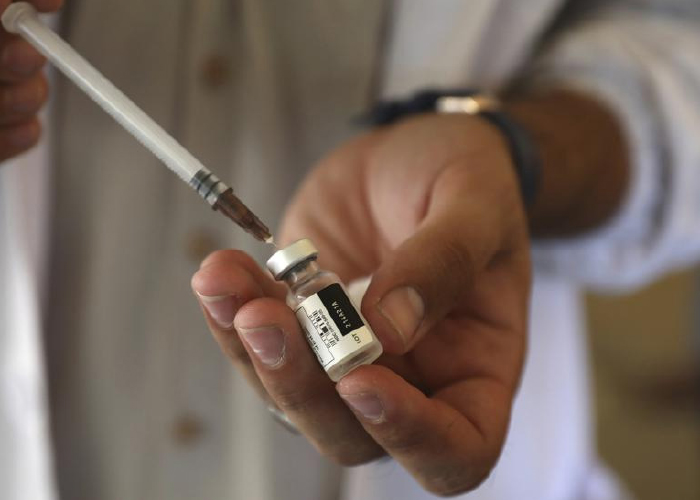LONDON — Top officials at the World Health Organization say there’s not enough evidence to show that third doses of coronavirus vaccines are needed and appealed Monday for the scarce shots to be shared with poor countries who have yet to immunize their people instead of being used by rich countries as boosters.
At a press briefing, WHO director-general Tedros Adhanom Ghebreyesus said the world’s grotesque vaccine disparity was driven by “greed,” as he called on drugmakers to prioritize supplying their COVID-19 vaccines to poor countries instead of lobbying rich countries to use even more doses. His plea comes just as pharmaceutical companies are seeking authorization for third doses to be used as boosters in some Western countries, including the U.S.
“We are making conscious choices right now not to protect those in need,” Tedros said, adding the immediate priority must be to vaccinate people who have yet to receive a single dose.
He called on Pfizer and Moderna to “go all out to supply COVAX, the Africa Vaccine Acquisition Task Team and low and middle-income countries with very little coverage,” referring to the U.N.-backed initiative to distribute vaccines globally.
After a 10-week drop in global coronavirus deaths, Tedros said the number of COVID-19 patients dying daily is again beginning to climb and that the extremely infectious delta variant is “driving catastrophic waves of cases.”
Both Pfizer and Moderna have agreed to supply small amounts of their vaccines to COVAX, but the vast majority of their doses have been reserved by rich countries. The U.N.-backed effort has faltered badly in recent months, with nearly 60 poor countries stalled in their vaccination efforts and their biggest vaccine supplier unable to share any doses until the end of the year.
Pfizer met with top U.S. officials on Monday to discuss its plans to seek authorization for a third dose. Last week, the company said the booster could dramatically ramp up immunity and perhaps help ward off worrisome variants — even as U.S. health authorities stressed that fully vaccinated Americans are strongly protected and don’t need boosters yet.
“Both Pfizer and the U.S. government share a sense of urgency in staying ahead of the virus that causes COVID-19, and we also agree that the scientific data will dictate next steps,” the company said in a statement late Monday.
It’s not unusual for manufacturers to brief regulators before filing new data, and a U.S. government spokesperson said the information is just one piece of evidence authorities will use in deciding if, when and for whom a booster might be necessary.
Britain is also considering a possible booster vaccination plan in the fall, which would likely target those over 50 and the most vulnerable.
But WHO’s top experts disputed the need for a booster in fully immunized people. (AP)
Home » World » WHO: Rich Countries Should Donate Vaccines, Not Use Boosters
WHO: Rich Countries Should Donate Vaccines, Not Use Boosters

